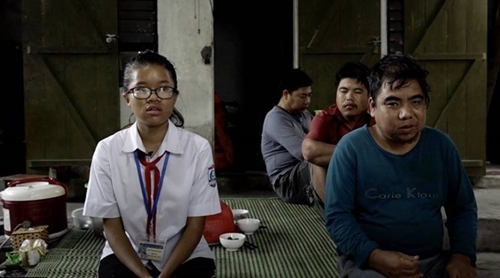August 17, 2022 | 21:05 (GMT+7)
Documentary on Agent Orange to be screened in Japan
A documentary entitled “Long Time Passing” featuring a victim of Agent Orange (AO) living in Vietnam will be available in theaters in Tokyo from August 20.
The film by Japanese director Masako Sakata depicts the daily life of Tran Thi Hoan, a young woman born without legs and one of her hands as her mother had been exposed to the toxic chemical in a field during her pregnancy. It also features the difficulty of many other AO victims and a court battle in France by a former journalist against U.S. chemical firms that manufactured AO used in the war.
    |
 |
|
The film will be screened in Japan from August 20. |
Sakata went to Vietnam in 2004 to learn about the consequences of the toxic chemical and made the first film on the matter.
Her husband died nearly two decades ago as a result of his exposure to the AO during military service in Vietnam.
Sakata has made two documentaries on AO, My Personal Requiem in 2007 and Living the Silent Spring in 2011, which have been shown in many countries such as the U.S., France, Japan, and Canada.
My Personal Requiem showed the debilitating effects of the toxic chemical on the human body that lasts for generations and how the Vietnamese have struggled to support victims. The film won several prizes, including the Mainichi documentary film award, the Paris International Environment Film Festival’s Special Prize, and the Earth Vision special jury award.
Living the Silent Spring is about the dangers chemical agents pose to humanity. In it, children of war veterans and their struggles with disability are explored, according to The Mainichi newspaper.
Sakata established the “Seeds of Hope” project to provide hundreds of scholarships to Vietnamese high school and university students who are AO victims.
In 2017, she received a Friendship Order from the President in recognition of her contribution to the movement “Action for the victims of Agent Orange in Vietnam.”
Source: VNA